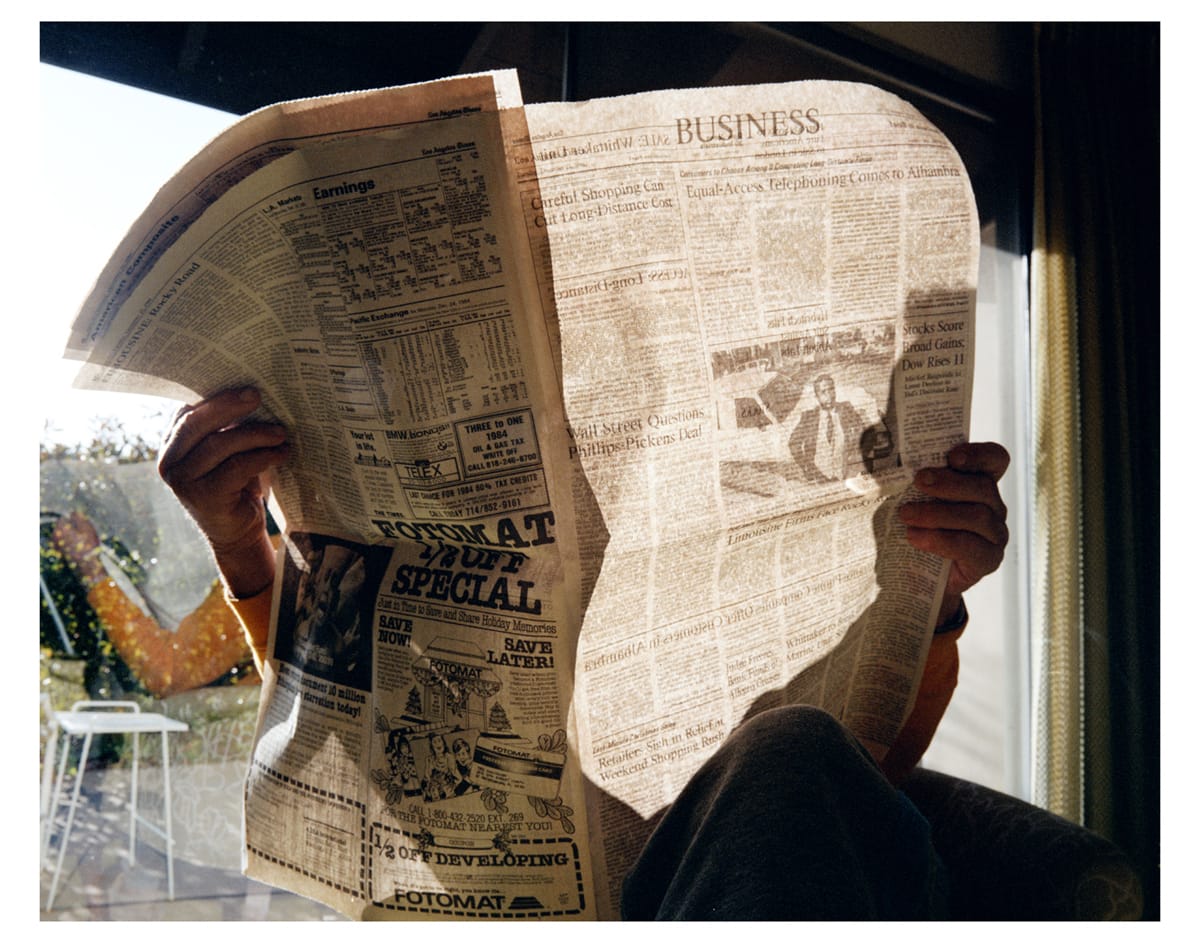Send, Dad
Ever since my dad got an iPad last year, he sees it fit to multitask: Read an article, and text me about it.

The stilted text messages start coming, sometimes as early as 5 a.m. “Collins has a winner today,” one such recent missive read, followed immediately by, “Kristof please stop writing about Syria. We can’t even stop people from getting killed on the South Side of Chicago.”
I work in the opinion section of the New York Times. It is not odd for me to hear from readers by email or over Twitter. But I do not have a personal texting relationship with any readers, except for one: my dad.
My dad has come a long way with technology. A cell phone is still the thing he turns on only when he’s getting in the car and turns off when he gets out of it. But ever since he got an iPad last year, which he uses to read the Times front to back every day, he sees it fit to multitask: read an article and then immediately text his Times-employee daughter his take on the piece.
Ever since he learned to text, my dad and I have gotten a lot closer.
Curiously, ever since he learned to text, my dad and I have gotten a lot closer. We never used to talk. We didn’t have much to say to each other. My high school friends, who entertained colloquial relationships with other parents, were very scared of him and jokingly refused to call him anything but “sir.” I suppose I was a bit scared of him, too. But through text, my dad has found his medium for communication, and the newspaper for which I work has become a gateway for us to converse about everything from Israel-Palestine relations to the Bears and our yoga practices.
When I was small, I resented my dad. He went to work early, and when he came back late, my beloved mother, a sunny elementary school teacher, turned her attention to him. Perpetually exhausted from his work as a beef salesman on the South Side of Chicago, he was often surly and had a poorly managed temper.
As I grew older I began to understand my dad more. He comes from Irish Catholic and questionable German stock (with some Native American and French Canadian thrown in), the oldest of six unruly sinners of various degrees of reformation from the suburbs of Chicago. Talking about feelings wasn’t a thing for his family. He kept his emotions about his distant father, his devout, kooky mother, the Lord, and his career cooped up in his head until his depression reared itself when he was 51. This was a couple of months before my college graduation.
For the first time I saw my dad as the fragile, complicated man he was: at remove from his family for leaving the Catholic Church to marry my mother, a Jew, and raise “pagan babies,” as my grandmother called my brother and me before we were born; a man who didn’t really find out what he wanted to do with his life until he was in his forties, when he became a math teacher. All the while having the classic Catholic difficulty in expressing emotion.
One of my favorite things to do during a down spell was to turn off my phone and computer and slide them under the refrigerator and not talk to anyone, especially my parents.
More observant in my advancing age, I notice certain things about our shared behavior, like how we both like to eat stalks of celery standing over the kitchen sink and take naps with our shoes on. And how, when negative thoughts creep into our psyches, we both cope by shutting down completely.
I am still scared for him, and also for myself, because we are so similar, and depression has that way of snaking itself between generations. As the psychologist Kay Jamison once said, “Families must guard themselves against the contagion of hopelessness.” For my dad and I, that guard has become texting.
When I had just started college, we would sometimes write long emails to each other, reaching into our respective philosophical pockets. Later on, that correspondence faded. Depressed people like us have a special talent for not communicating. One of my favorite things to do during a down spell was to turn off my phone and computer and slide them under the refrigerator and not talk to anyone, especially my parents. I thought that to be unreachable, to be alone, was to be divine. However, my hermetic tendencies cut me off from so many people that before long hardly anyone bothered to reach me at all. And I can say for certain that to be alone is to literally wither away.
I am better now. Part of that is knowing that I can regularly expect some kind of funny message on my phone from my dad. When I was visiting him recently—when he wasn’t group texting with his friends—he would text me from across the room, or from another room in the house. “Merry Xmas tochter,” he wrote on Christmas morning, from his bedroom to mine. “Your wit and humor are one of a kind.” It’s the kind of thing he might never say to me in person, but I like having it in writing better. “You too father,” I replied.
A few weeks ago my phone fumbled from my fingertips to the subway platform and lost its life. With it went one year of my father’s text messages.
I’d never cared much for technology until that phone’s screen went black for the last time.
